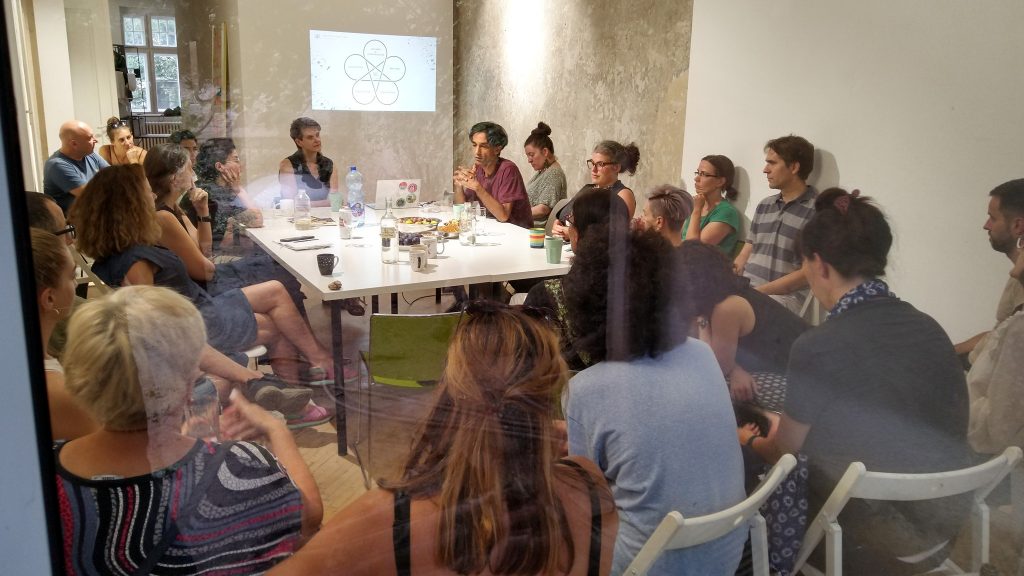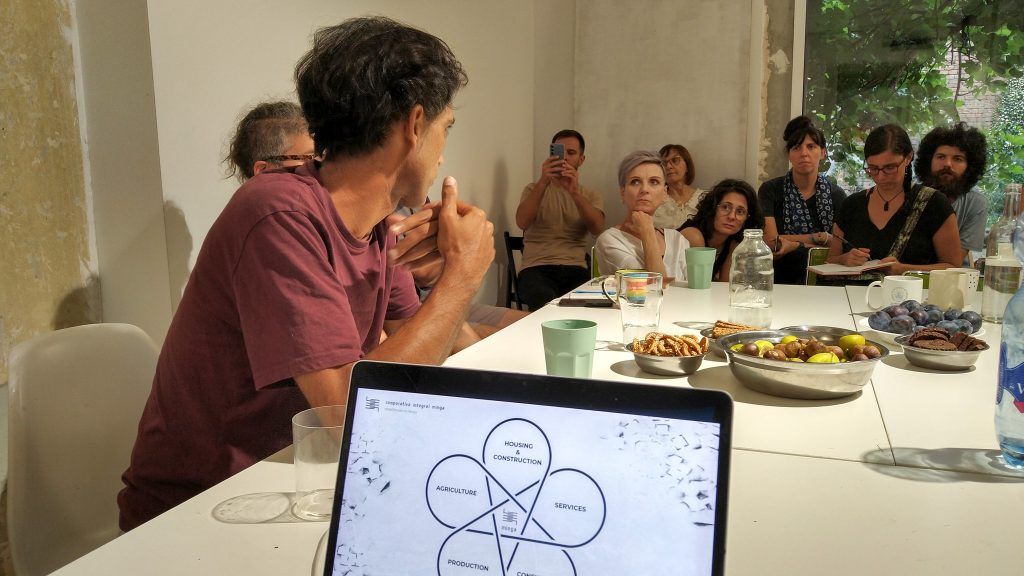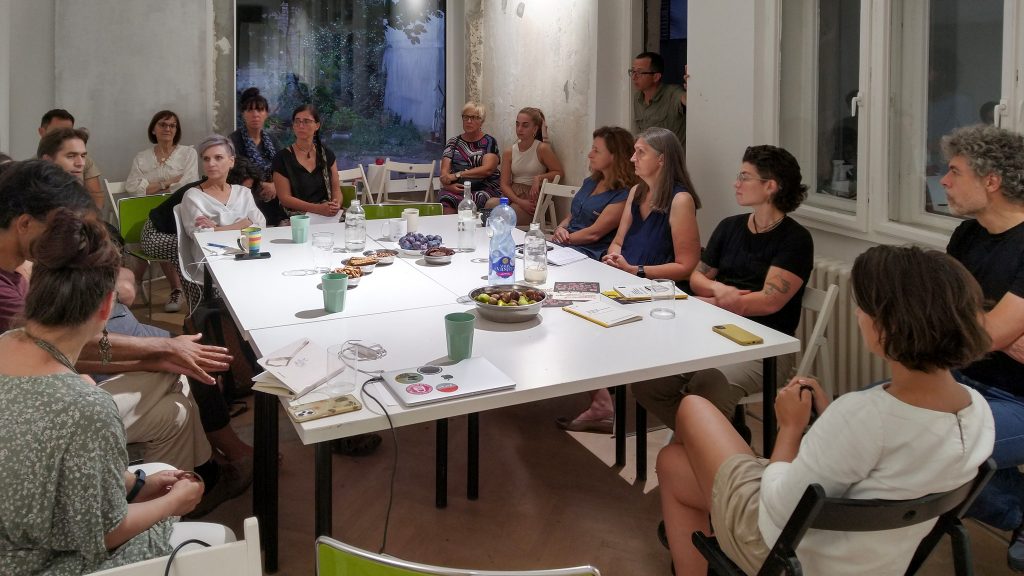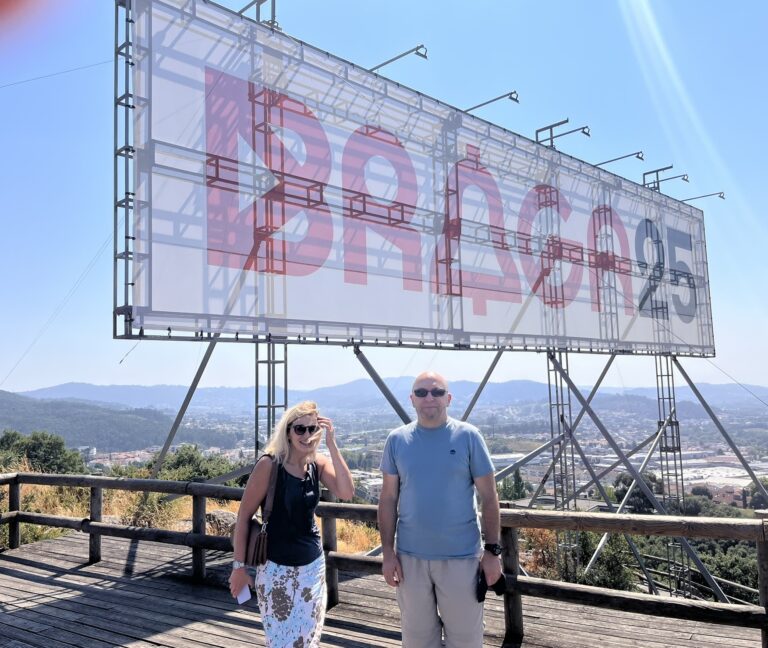By Filipa Cabrita
On August 8, Cooperativa Integral Minga was invited by the Geographical Institute “Jovan Cvijić” SANU to engage in a collaborative exchange with KO GRADI GRAD, focusing on the establishment and operation of housing cooperatives. This gathering provided a valuable platform for both organizations to share experiences and insights, while exploring the potential for creating cooperative housing initiatives in both Portugal and Serbia.



Credits for images: Inês Santos
The discussion with KO GRADI GRAD was highly enriching, as we explored how cooperatives can tackle pressing challenges such as housing shortages and community development. Like Minga, KO GRADI GRAD is deeply committed to fostering transformative, community-led solutions through grassroots efforts designed to combat speculative real estate dynamics and promote equitable access to housing.
One of the most significant aspects of the exchange was the alignment of values between our cooperatives. Minga’s core philosophy, centered on degrowth, sustainability, and community-driven action, resonated strongly with the Serbian tradition of “moba”, where collective effort drives meaningful change. This shared ethos set the stage for an engaging and productive dialogue.
A key highlight of the exchange was the opportunity to discuss recent political developments in Portugal, driven by the urgency of the housing crisis. Minga was able to explain how this growing crisis has spurred legislative reforms aimed at promoting a New Generation of Housing Cooperatives in Portugal. The introduction of a new law in Portugal is set to create a more favorable environment for the emergence of a new generation of housing cooperatives based on collective ownership. This marks a hopeful moment in Portugal’s housing policy, providing a supportive legal framework for cooperative models like Minga’s and Moba’s. It paves the way for non-speculative, sustainable, and community-based housing solutions that prioritize affordability and equitable access for all.
Despite the recognition of the value these cooperative models offer, both Minga and KO GRADI GRAD identified a shared challenge: the absence of financial mechanisms to support community-based, collectively owned housing projects. Political systems in both countries have been slow to implement the necessary tools and frameworks to ensure the viability and success of these bottom-up initiatives.
The exchange also introduced Minga to several key publications from KO GRADI GRAD that effectively synthesize these concepts, enhancing our understanding and reinforcing our capacity to advocate for these cooperative models. The discussions were inspiring, encouraging us to continue this important dialogue, build stronger networks, and pursue long-term collaboration between our cooperatives.
Looking ahead, we remain hopeful that the political momentum in Portugal, combined with ongoing knowledge exchanges like this one, will open up new possibilities for more sustainable and inclusive housing solutions in both Portugal and Serbia.

